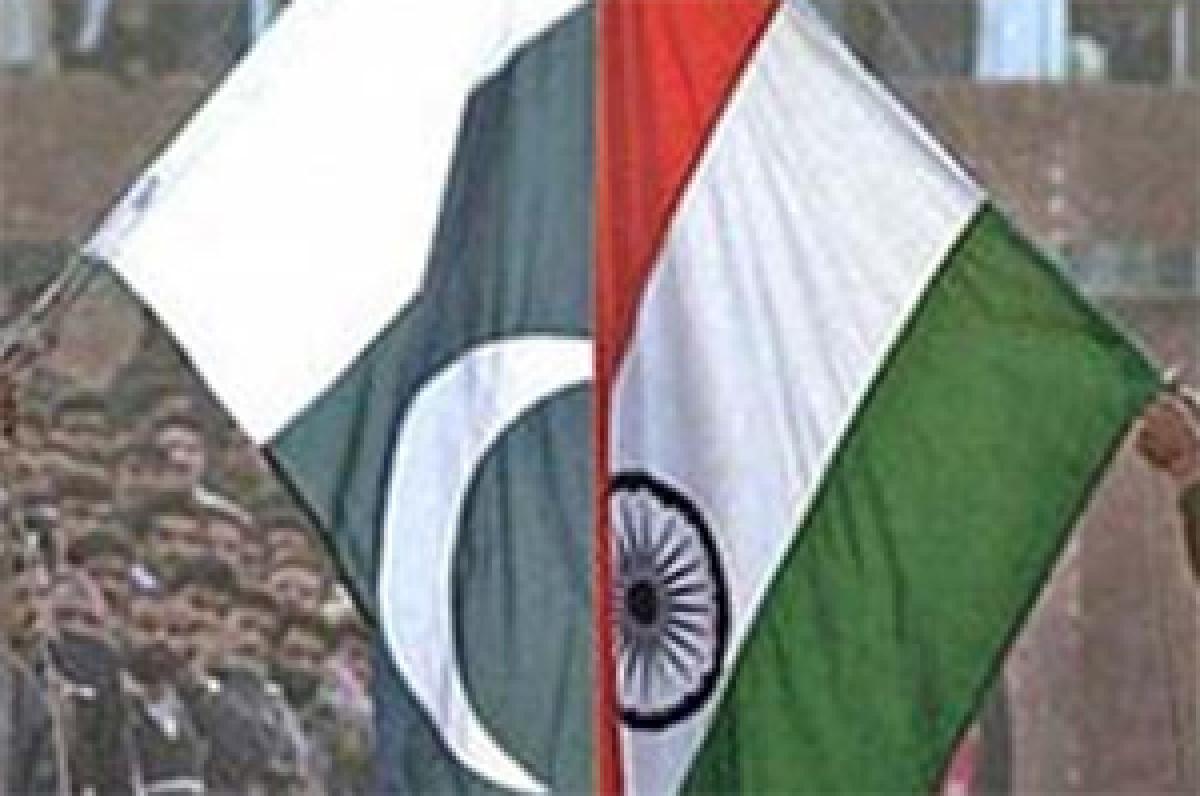Live
- NASA Tracks Five Giant Asteroids on Close Approach to Earth Today
- Pushpa 2 Hits ₹1000 Crore in 6 Days: How It Compares to Other Top Indian Films
- Vivo X200 and X200 Pro Launched in India: Price, Specifications, and Features
- Nitin Gadkari Admits Feeling Embarrassed at Global Summits Over Rising Road Accidents in India
- Comprehensive Review on Indiramma Housing Survey and Welfare Initiatives Conducted via Video Conference
- Jogulamba Temple Records Rs 1.06 Crore Hundi Revenue in 150 Days
- Opposition Slams ‘One Nation, One Election’ Bill as Anti-Democratic; BJP Allies Support the Move
- Celebrate Karthigai Maha Deepam Virtually with Sri Mandir’s LIVE Darshan Experience
- BJP Extends Support to Samagra Shiksha Abhiyan Employees' Strike, Demands Immediate Regularization and Welfare Benefits
- Dr. M. Priyanka Stresses Quality Education, Nutritious Meals, and Cleanliness in Schools
Just In

India\'s Hidden Message To Pakistan Via Sub Regional Agreement. India\'s road connectivity agreement with Bangladesh, Bhutan and Nepal in a sub-regional framework is a good move and a veiled message to Pakistan that it cannot hold up progress in areas such as connectivity, power and water management among SAARC countries, former Indian diplomats have said.
.jpg) New Delhi: India's road connectivity agreement with Bangladesh, Bhutan and Nepal in a sub-regional framework is a good move and a veiled message to Pakistan that it cannot hold up progress in areas such as connectivity, power and water management among SAARC countries, former Indian diplomats have said.
New Delhi: India's road connectivity agreement with Bangladesh, Bhutan and Nepal in a sub-regional framework is a good move and a veiled message to Pakistan that it cannot hold up progress in areas such as connectivity, power and water management among SAARC countries, former Indian diplomats have said.
It also signals a subtle change in the government's foreign policy, making it less Pakistan-centric, they have said.
Bhutan, Bangladesh, India and Nepal (BBIN)- four Saarc countries - last week signed a far-reaching agreement in Thimphu to enhance regional connectivity by facilitating seamless movement of people, goods and vehicles among them. The accord is expected to come into effect from September this year.
The agreement was signed after Pakistan was seen to have shot down a motor vehicles agreement (MVA) at the eight-nation Saarc's (South Asian Association for Regional Cooperation) summit in Kathmandu last November.
Former Indian high commissioner to Pakistan G. Parthasarathy said the agreement to enhance connectivity in sub-regional BBIN framework "is a very good move."
"Pakistan is not only a reluctant player (in Saarc), it is a spoiler. Regional cooperation does not rule out sub-regional cooperation," Parthasarathy told IANS.
Prime Minister Narendra Modi has been laying stress on regional cooperation since assuming office last May and had invited leaders of all Saarc countries to his swearing-in ceremony. However, during his visit to Bangladesh earlier this month, Modi took digs at Pakistan for apparently scuttling Saarc connectivity projects and cited successful forward movement in these projects in the BBIN framework.
Rakesh Sood, former envoy of India to Nepal, said it was the first sub-regional cooperation agreement by India in the neigbourhood and goes beyond the bilateral accords done in the past.
"Bangladesh, Nepal and Bhutan were agreeable. Therefore, it moved ahead. The agreement improves connectivity. It is a positive development," Sood told IANS.
He said Pakistan has been unwilling to give India the most favoured nation (MFN) status to India though New Delhi has done bilateral trade agreements in the neighbourhood. He said there is need to make further progress in sub-regional cooperation in areas such as water resources management and power.
Shashi Tripathi, former Secretary (West) in the External Affairs Ministry, said the sub-regional agreement was certainly “a significant and a far-sighted move to shift from being Pakistan-centric to becoming neighbour centric.”
Tripathi, former high commissioner to Canada, said in the past some neighbours had felt slighted because "they felt that too much attention was being paid to one country at the cost of others".
"The agreement has taken place in economic field so it is no threat to anyone. It is a win-win situation for all... It does send out some signals which could not be lost on friends in Pakistan,” Tripathi told IANS.
Former foreign secretary Shashank said that Pakistan continues to be a roadblock in Saarc cooperation and India is moving ahead with sub-regional cooperation, signifying a change in government approach.
"There is a change (in government's approach). Pakistan is not allowing us to move. China is cornering us...Time has come for India to act," he said.
He said the Narendra Modi government has taken a lead in pursuing the policy of sub-regional cooperation while keeping the door open for others for cooperation in Saarc framework.
The agreement in BBIN framework signed in Thimphu last week has renewed commitment of the four countries to substantially enhance regional connectivity through building and upgrading roads, railways, waterways infrastructure, energy grids, communications and air links.
India also announced at the meeting it would conclude the motor vehicles agreement with Myanmar and Thailand too. India had in May inked a deal on its participation in the development of Iran's Chabahar port, located on Iran's southeastern coast. It is expected to provide India a sea-land access to Afghanistan, bypassing Pakistan.

© 2024 Hyderabad Media House Limited/The Hans India. All rights reserved. Powered by hocalwire.com







